PODER POPULAR COMUNITARIO.
15 de septiembre de 2023
http://www.ImmigrantSolidarity.org
MENSAJE DE VICTOR TORO RAMIREZ.
Video: 50 AÑOS DEL GOLPE
Movimiento de La Peña del Bronx.
http://www.ImmigrantSolidarity.org
https://poderpopularcomunitario.blogspot.com
 Trabajadores
en huelga afiliados al sindicato United Auto Workers protestan frente a
la Planta de Ensamblaje de Ford en Michigan el viernes 15 de septiembre
de 2023, poco después de la medianoche, en Wayne, Michigan. ((Paul
Sancya / Associated Press)) © (Paul San
Trabajadores
en huelga afiliados al sindicato United Auto Workers protestan frente a
la Planta de Ensamblaje de Ford en Michigan el viernes 15 de septiembre
de 2023, poco después de la medianoche, en Wayne, Michigan. ((Paul
Sancya / Associated Press)) © (Paul SanChile :: 11/09/2023.
Miguel Enríquez, el menos muerto de todos x Andrés Bianque.
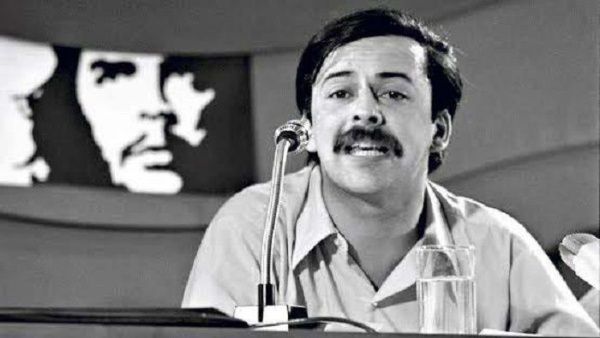 A
50 años del 11S :: Martes 11S, Allende no acepta planes de retirada ni
huidas por patios traseros. Se queda. Envía una sola frase al Secretario
General del MIR: ¡Ahora es tu turno, Miguel!
A
50 años del 11S :: Martes 11S, Allende no acepta planes de retirada ni
huidas por patios traseros. Se queda. Envía una sola frase al Secretario
General del MIR: ¡Ahora es tu turno, Miguel!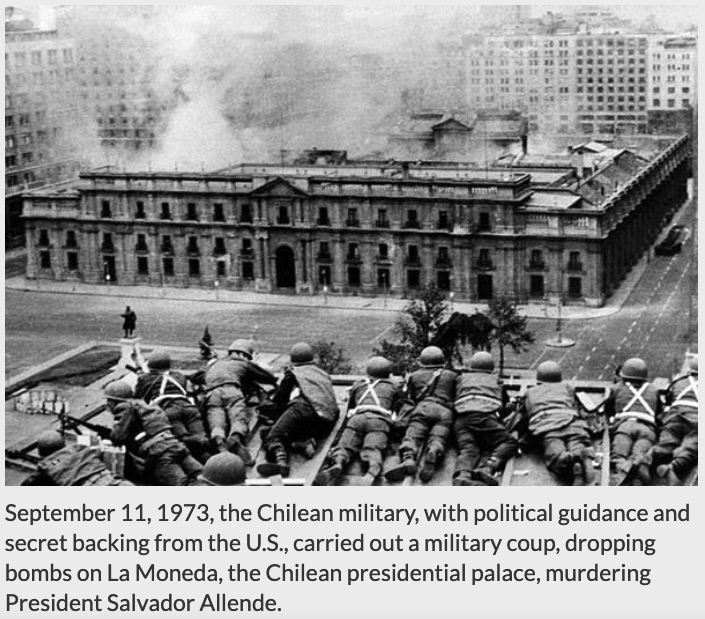 Victor,9/11. Many
living in the U.S. think of this disaster only in terms of American
lives. But the Bush/Cheney regime used it to launch the global "war of
terror" that led to the deaths of 4.5M people in the Middle East with at
least another 65M people displaced. This was an imperialist disaster
with unprecedented repercussions for the climate and human rights,
spreading more wars of aggression.And here's the "other" 9/11: the 1973 CIA-sponsored coup in Chile. 50 years ago today...Here
in NYC, because of super-high temps last week, we postponed the vigil
to close the U.S. torture camp at Guantanamo. Join us 5:00 pm Wednesday
September 13 outside the NY Public Library. We
won't shut up about this 21-year war crime because it officially broke
with the rule of law, setting a precedent the U.S. so far is sticking to
of imprisoning people outside the law.
Victor,9/11. Many
living in the U.S. think of this disaster only in terms of American
lives. But the Bush/Cheney regime used it to launch the global "war of
terror" that led to the deaths of 4.5M people in the Middle East with at
least another 65M people displaced. This was an imperialist disaster
with unprecedented repercussions for the climate and human rights,
spreading more wars of aggression.And here's the "other" 9/11: the 1973 CIA-sponsored coup in Chile. 50 years ago today...Here
in NYC, because of super-high temps last week, we postponed the vigil
to close the U.S. torture camp at Guantanamo. Join us 5:00 pm Wednesday
September 13 outside the NY Public Library. We
won't shut up about this 21-year war crime because it officially broke
with the rule of law, setting a precedent the U.S. so far is sticking to
of imprisoning people outside the law.
Recent articles & asks on Guantanamo:
✔️ Trial Judge Destroys Guantánamo's Military Commissions, Rules That "Clean Team" Interrogations Cannot Undo the Effects of Torture✔️ Letter to State Department re: Saeed Bakhouch, former Gitmo detainee imprisoned in Algeria after release✔️ Please Write to the Guantánamo Prisoners, to Let Them Know We Remember Them✔️ “Doing Harm”: Roy Eidelson on the American Psychological Association’s Embrace of U.S. Torture Program
It's a Climate EMERGENCY!Join us this coming Sunday, September 17 at the mass (multiple thousands are expected) March to End Fossil Fuels. We will be gathering at the NE corner of 54th Street and Broadway (moving towards 7th Avenue). We'll be there from 12:00 on. The march begins at 1:00 and ends at 4:30.
We are part of the Anti-Militarism Contingent. You will find us easily by looking for the giant elephant representing the elephant in the room, the U.S. military. With a military that burns more fossil fuel than any other institution and a global empire that produces more petroleum than any other country, the U.S. is a danger to the planet. In the interests of humanity, we must take action to stop the crimes of our government.

There may still be some seats available on buses from Washington DC and Philadelphia - free of charge. If you're interested, email us ASAP. And, please email us to let us know if you'll be marching with us.
We're living on a planet that's on the brink — wildfires decimating whole communities, floods upending lives and ice caps melting at an alarming rate. The climate and ecological crisis threatens everything on our planet. Science makes clear that we have only a very small window of time in which to end fossil fuels and stop carbon emissions. Biden has not lived up to his climate pledges and rhetoric made during the 2020 election campaign — while those failed pledges are largely ineffective and weak. And, the Biden administration's actions are even worse: increased fossil fuel oil and gas drilling, production and export. Projects such as the Willow Project and Alaska LNG, commonly referred to as "carbon bombs," will trigger catastrophic climate breakdown to an extent no known climate technology can recover from.
If you will be in NYC this week or following the Sunday march, there are additional actions taking place. Take a look and sign up if you can participate in any. Check out NYC Extinction Rebellion's special events and actions. On Monday, September 18, there will be a mass direct action with expected hundreds of participants. Sign up here.
Debra Sweet, Director, World Can't WaitStephanie Rugoff, Coordinator, WeAreNotYourSoldiers.org
Make a donation onlineSend checks or money orders, payable to "World Can't Wait"To make a tax-deductible donation of $100 or more in support of World Can't Wait's educational activities, please make checks out to "Alliance for Global Justice," a 501(3)(c) organization, note: World Can't Wait, or donate here.
WarCriminalsWatch.org • WeAreNotYourSoldiers.org • FireJohnYoo.net
Check out Sudan's Struggle, a project of World Can't Wait volunteer Carol Dudek
World Can't Wait | (646) 807-3259 | 2 East 28th Street #321, New York NY 10016-7402
POR Ariel Dorfman
I Watched a Democracy Die. I Don’t Want to Do It Again.
I Watched a Democracy Die. I Don’t Want to Do It Again.

Mr. Dorfman, a former cultural adviser in President Salvador Allende’s government, is the author of the novel “The Suicide Museum.”
For 50 years, I have been mourning the death of President Salvador Allende of Chile, who was overthrown in a coup the morning of Sept. 11, 1973. For 50 years, I have mourned his death and the many deaths that followed: the execution and disappearance of my friends and so many more unknown women and men whom I marched with through the streets of Santiago in defense of Mr. Allende and his unprecedented attempt to build a socialist society without bloodshed.
I can pinpoint the moment I realized that our peaceful revolution had failed. It was early on the morning of the coup in the nation’s capital, when I heard the announcement that a junta led by Gen. Augusto Pinochet was now in control of Chile. Later that night, huddling in a safe house, already being hunted by Chile’s new rulers, I listened to a radio broadcast that Mr. Allende had been found dead at La Moneda, the presidential palace and seat of government, after the armed forces bombed it and assaulted it with tanks and troops.
My first reaction was dread. Dread of what could happen to me, to my family and friends, dread at what was about to happen to my country. And then I was overcome by a sorrow that has never quite lifted from my heart. We had been given a unique, luminous chance to change history — a left-wing, democratically elected government in Latin America that was set to be an inspiration to the world. And then we had blown it.
Not only did General Pinochet end our dreams; he ushered in an era of brutal human rights violations. During his military rule, from 1973 to 1990, more than 40,000 people were subjected to physical and psychological torture. Hundreds of thousands of Chileans — political opponents, independent critics or innocent civilians suspected of having links to them — were jailed, murdered, persecuted or exiled. More than a thousand men and women are still among the desaparecidos, the disappeared, with no funerals and no graves.
How our nation remembers, 50 years later, the historical trauma of our common past could not be more important than it is now, when the temptation of authoritarian rule is once again on the rise among Chileans, as it is, of course, across the world. Many conservatives in Chile today argue that the 1973 coup was a necessary correction. Behind their justification lurks a dangerous nostalgia for a strongman who supposedly will deal with the problems of our time by imposing order, crushing dissent and restoring some sort of mythical national identity.
Today, when around 70 percent of the population had not even been born at the time of the military takeover, it is critical for people both in Chile and the rest of the world to remember the dire consequences of resorting to violence to resolve our dilemmas and indulging in division rather than striving for solidarity, dialogue and compassion.
Fifty years ago, as soon as I heard the name Augusto Pinochet, I knew we were doomed. Mr. Allende had trusted General Pinochet, the head of the Chilean Army, as the one officer we could count on to support the Constitution and stop any putsch. I spoke to the general briefly just a week earlier. I was working at La Moneda as the media and cultural adviser to Mr. Allende’s chief of staff. I often answered the phones, and I happened to pick up when General Pinochet called, saying in his gruff, nasal voice that would soon bark out the orders to destroy the democracy he had sworn to uphold.
Chile had entranced me ever since I arrived in the country as a 12-year-old, born in Argentina and raised in the United States. As I grew older, what became central to my love for the country was the thrill of living in a nation with a longstanding democracy and a national liberation movement born of the struggles of generations of workers and intellectuals, with the charismatic figure of Mr. Allende leading the way to a future that did not rely on the exploitation of the many by the few.
That wasn’t just a dream. When our leader won the national elections in 1970, his coalition of left-wing parties put in effect a series of policies that began to release Chile from its reliance on foreign corporations and the local oligarchy. It is hard to describe the joy, both personal and collective, that accompanied this certainty that ordinary people were the protagonists of history, that we did not have to accept the world as we had found it.
But what was a radiant opportunity for us had felt like a threat to a number of our compatriots who saw our revolution as an arrogant assault on their deepest identities and traditions. This was especially true for those who considered their property and privileges as part of a natural and eternal order. These longstanding owners of Chile’s wealth, with the support of President Richard Nixon’s White House and the C.I.A., conspired to sabotage Mr. Allende’s government.
There was no mourning among the rich and powerful that night of Sept. 11. They were celebrating that Chile had been saved from what they feared would become another Cuba, a totalitarian state that would erase them from the country they claimed as their fief. The abyss that opened that day between the victims and the beneficiaries of the coup persists, many years after democracy was restored in 1990.
There has been some progress since then in creating a national consensus that the atrocities of the dictatorship must never again — nunca más — be tolerated. But today Chile’s radical right and more than a third of Chileans have expressed approval of the Pinochet regime.
No consensus, therefore, has been reached about the coup itself, despite the efforts of Chile’s current president, Gabriel Boric. Mr. Boric, who is just 37 and an admirer of Mr. Allende, tried to have all political parties sign a joint statement that declared that under no circumstances can a military takeover ever be justified. Last week, the right-wing parties declined to sign the statement.
The right-wing leader José Antonio Kast, a sort of Trump of the Andes who is favored to win the presidency in 2025, is an outspoken supporter of the dictator’s legacy. He refuses, like an alarming number of his devotees, to condemn what happened on Sept. 11, 1973. They insist on the thesis that, regrettable as the resulting abuses may have been, the armed forces had no alternative but to rise up in order to save Chile from socialism.
Perhaps many young Chileans will shrug and think of this as just another political feud that has little impact on the long list of troubles they face today: crime and migration into the country; an economic and climate crisis; inadequate health care, education and pensions; a revolt by Indigenous communities in the south of the country. But we need to find a way to forge a shared understanding of our past so we can start creating a shared vision of Chile for the many tomorrows that await us.
At this time of confusion and polarization, what sort of guidance can I, a Chilean who lived through this history, offer the younger generations as they grapple with how to remember this day? How can we encourage them to continue to work toward a future when it will be possible for all Chileans — or almost all — to fervently say, “Nunca más”?
I offer one word: seguimos. We go on.
We go on. We do not flag. We will not be discouraged.
It is one of Mr. Boric’s favorite words. It’s also an attitude that Mr. Allende immortalized in his last speech from La Moneda as he prepared to die. He told the people of Chile that soon “the calm metal of my voice will not reach you. It does not matter. You will continue to hear me. I will always be beside you.”
Seguimos, so that Chile, despite all it has suffered, perhaps because of what it has suffered, can persevere on the road toward justice and dignity for all. And seguimos, so young Chileans today do not spend the rest of their lives in mourning, lamenting what might have been.
Ariel Dorfman, a distinguished professor emeritus of literature at Duke University, is the author of the play “Death and the Maiden” and the novel “The Suicide Museum.”
The Times is committed to publishing a diversity of letters to the editor. We’d like to hear what you think about this or any of our articles. Here are some tips. And here’s our email: letters@nytimes.com.
Follow The New York Times Opinion section on Facebook, Twitter (@NYTopinion) and Instagram.
Chile. El MIR homenajeó a las y los militantes caídos en la población La Legua
Chile. El MIR homenajeó a las y los militantes caídos en la población La Legua

Resumen Latinoamericano, 10 de septiembre de 2023.
Este pasado sábado, el Movimiento de Izquierda Revolucionaria (MIR) recordó a las y los luchadores asesinados en un acto en la población La Legua, en el marco de los 50 años del golpe
Carta de Fidel Castro a Salvador Allende del 29 de julio de 1973 X Fidel Castro.
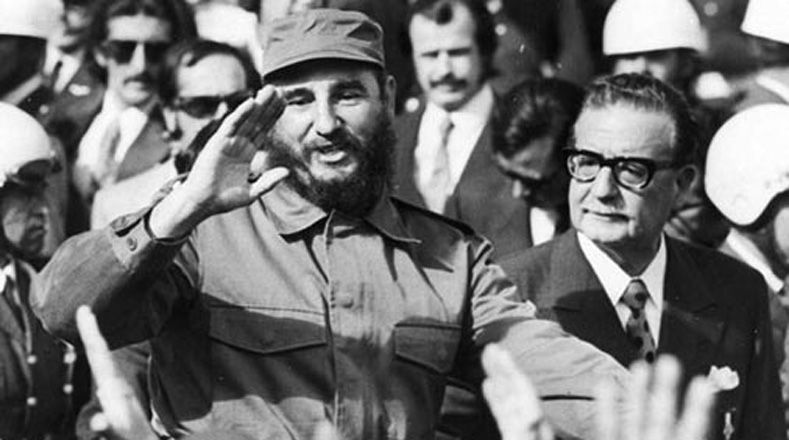 A
50 años del 11S :: Fidel, ante la proximidad del golpe militar en
Chile, escribe: "no olvides por un segundo la formidable fuerza de la
clase obrera chilena"
A
50 años del 11S :: Fidel, ante la proximidad del golpe militar en
Chile, escribe: "no olvides por un segundo la formidable fuerza de la
clase obrera chilena"La batalla de Chile x Juan Diego García
Henry Kissinger, el hacedor de masacres centenario x Alberto López Girondo.
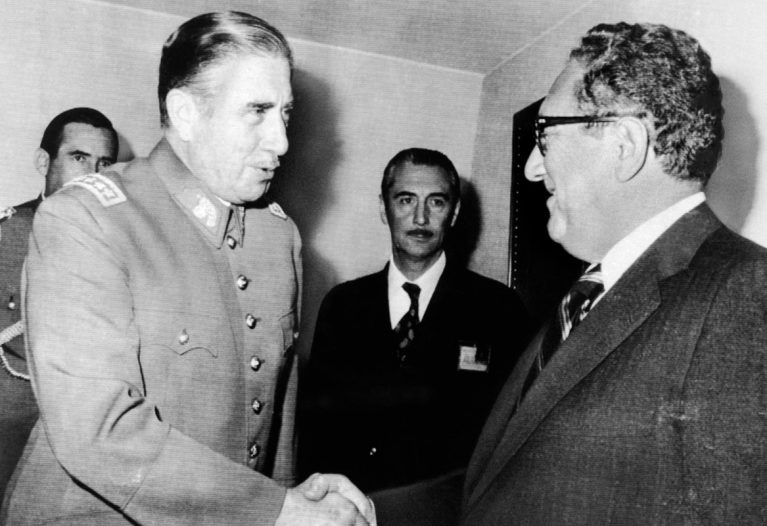 A 50 años del 11S :: Si algo resultó barrido bajo la alfombra fue su rol en el golpe que llevó al poder a Augusto Pinochet....,Mundo :: 11/09/2023
A 50 años del 11S :: Si algo resultó barrido bajo la alfombra fue su rol en el golpe que llevó al poder a Augusto Pinochet....,Mundo :: 11/09/2023 Colapso climático y geoingeniería x Silvia Ribeiro
Zelensky junto al "fuhrer blanco" x Red Voltaire / La aine.

 Movimiento de La Peña del Bronx.
Movimiento de La Peña del Bronx.36 ANIVERSARIO.
HONOR Y GLORIA AL PRESIDENTE MARTIR SALVADOR ALLENDE ASESINADO EL 11 DE SEPTIEMBRE DE 1973 Y CELEBRACION DEL FESTIVAL POR EL 36 ANIVERSARIO DEL Movimiento de la Peña del Bronx.PEOPLE POWER. Apoya UN DIA SIN INMIGRANTES y Huelga Global el 2023 .POR UNA LEGALIZACION PARA TOD@S L@S INDOCUMENTAD@S...CHILE.ANIVERSARIOS -HISTORICOS.SEPTIEMBRE,2023.LUGAR -MARIA SOLA COMMUNITY GARDEN.134 ST. AND LINCOLN AVE.SUR DEL BRONX.TREN 6.3ERA AVE-138 ST.2 A 7 PM.TELEFONO:1(718)2926137..
ANIVERSARIOS-HISTORICOS.
PEOPLE POWER.
EN EL 36 ANIVERSARIO DEL Movimiento de la Peña del Bronx apoya UN DIA SIN INMIGRANTES y Huelga Global el 2023 .POR UNA LEGALIZACION PARA L@S 12 MILLONES OLVIDAD@S DEL 2006 Y PARA TOD@S L@S RECIEN LLEGAD@S. ...,
Chile: resistencia: Ni víctimas ni derrotados, la lucha continúa. | |||
 | |||
|
Archivo Chilehttps://www.archivochile.com › html
Video sobre la caida y asesinato del Revolucionario Arnoldo Camu .JEFE DEL ELN CHILENO,24 DE SEPTIEMBRE DE 1973.
 |
|
|
|
|
|
|
|
|
|
 |
Chile
-
Chile. Fuerte represión de los carabineros de Boric en la marcha a 50 años del golpe pinochetista /Manifestantes atacaron con piedras la Casa de Gobierno / A pesar de todo se llegó al Cementerio
Resumen Latinoamericano, 10 de septiembre de 2023. foto: Encapuchados atacaron La Moneda | En la jornada hubo dos marchas, una encabezada por el presidente Boric...
-
Chile. El MIR homenajeó a las y los militantes caídos en la población La Legua
Resumen Latinoamericano, 10 de septiembre de 2023. Este pasado sábado, el Movimiento de Izquierda Revolucionaria (MIR) recordó a las y los luchadores asesinados en un...
-
Chile. A 50 años del golpe cívico-militar: el legado de Allende
Resumen Latinoamericano, 10 de septiembre de 2023. Foto: Archivo. Hace 50 años se desarrolló una de las páginas más oscuras y sangrientas de la historia...
-
Chile. 11 Septiembre 1973, un parteaguas que aún perdura
Por Geraldina Colotti, Resumen Latinoamericano, 10 de septiembre de 2023. El 4 de septiembre de 1970, en plena “Guerra Fría”, se realizaron en Chile elecciones...
-
Chile. A medio siglo del Golpe de Pinochet: Dos fantasmas que acechan
Por Frank Gaudichaud. Resumen Latinoamericano, 10 de septiembre de 2023. e una parte y otra del espectro político, casi todas las chilenas y todos los...
-
Chile. Homenajean a quienes transmitieron último discurso de Salvador Allende
Resumen Latinoamericano, 10 de septiembre de 2023. Durante los años Unidad Popular, fue Radio Magallanes quien asumió el rol de portavoz oficial del Partido Comunista...
-
Chile. Si perdemos la humanidad, entonces lo habremos perdido todo
Por Daniel Matamala. Resumen Latinoamericano, 10 de septiembre de 2023. Carlos Lorca era el mayor de cinco hermanos, hijo de una profesora normalista y de...
-
Chile. Multitudinaria marcha de la izquierda marchó al cementerio para recordar a los asesinados durante la dictadura / Hubo represión de los carabineros (videos)
Resumen Latinoamericano, 10 de septiembre de 2023. Miles de manifestantes de organizaciones de izquierda marcharon este domingo por las calles de Santiago y en varios...
-
Chile. Henry Kissinger, el hacedor de masacres centenario
Por Alberto López Girondo*, Resumen Latinoamericano, 9 de septiembre de 2023. foto: Henry Kissinger y el genocida Pinochet Si algo resultó barrido bajo la alfombra fue...
-
Chile. El gobierno de Boric a los 50 años del golpe pinochetista, preparado para reprimir al pueblo este domingo 10 de septiembre
Por Victoria Aldunate Morales, Resumen Latinoamericano, 9 de septiembre de 2023. Este 10 de septiembre a ¡derrotar el copamiento represivo y la complicidad con nuestros opresores!...
-
Chile. Boric: “Estoy seguro que Piñera es un demócrata”
Resumen Latinoamericano, 09 de septiembre de 2023. A 48 horas de conmemorarse el 50 Aniversario del Golpe de Estado en Chile y más acá en...
-
Chile. Este 10 de septiembre ¡A derrotar el copamiento represivo y la complicidad con nuestros opresores!
Resumen Latinoamericano, 09 de septiembre de 2023. Frente a la Marcha de la Criminalización y la Intolerancia del día domingo 10 de septiembre, organizada por...
-
Chile: Desmontando la ‘verdad histórica’
Por Marcos Roitman Rosenman. Resumen Latinoamericano, 09 de septiembre de 2023. A 50 años del 11S La ‘verdad histórica’ limpió de sangre las manos de...
-
Chile. 50 años del golpe militar: 50 años del robo de bebés (+video)
Por Manuel Arismendi. Resumen Latinoamericano, 09 de septiembre de 2023. A pocos días de la conmemoración número 50 del derrocamiento del expresidente Salvador Allende, salen...


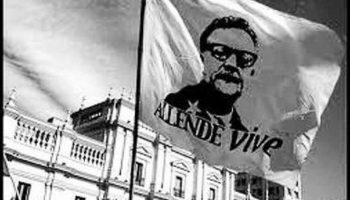
















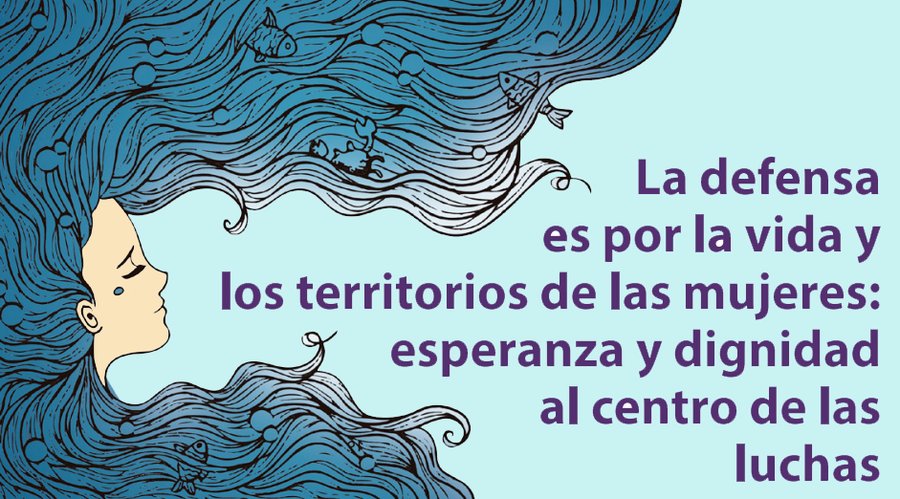





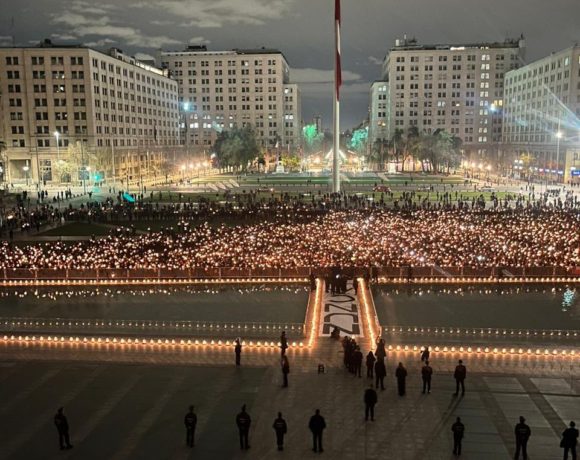
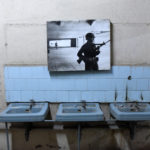
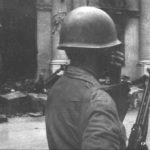


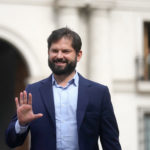
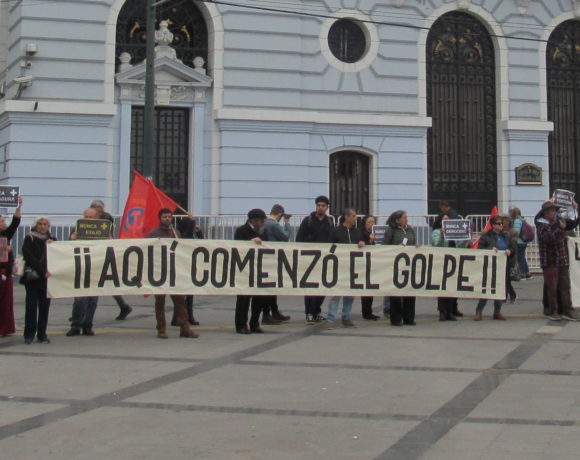
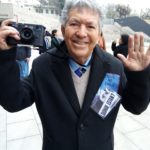
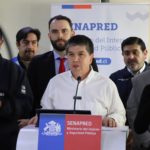




No hay comentarios:
Publicar un comentario